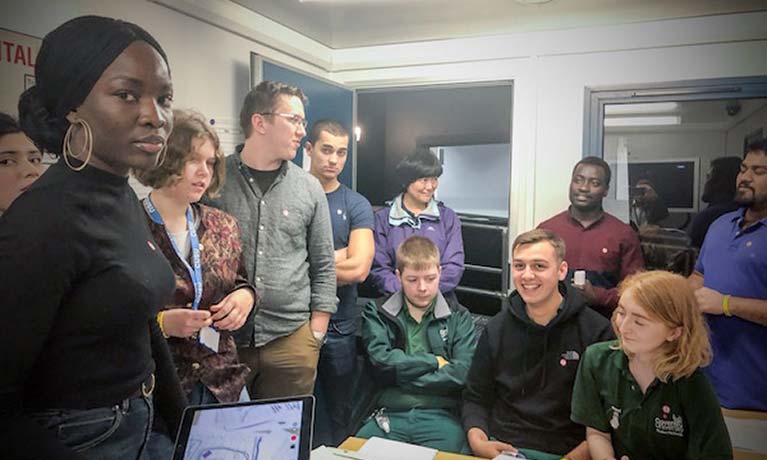Search
‘Big data tsunami’ will change the way we live – and everyone must be prepared, say academics

Tuesday 08 May 2018
Press contact
A ‘big data tsunami’ is altering probably every aspect of life, and it is up to academics to help businesses, communities and individuals adapt.
That was the message from a two-day event to look at some of the key questions to help society prepare for an explosion of big data and artificial intelligence (AI).
It came just over a month since the Cambridge Analytica and Facebook data scandal first hit the headlines, propelling some of the controversies surrounding the issue of big data to the forefront of the public’s minds.
Researchers from across Europe gathered for talks, organised by professors from Coventry University and Brunel Business School, to kick-start ideas for a new research project relating to these contentious topics.
The gathering was to map out how AI and big data will change society and people’s lives the most over the next decade and what research will best equip people and organisations to cope.
Debates explored topics such as: how the gig economy might spread to new sectors; how unevenly distributed leisure time might be polarising those out of work and those in work as a result of jobs being automated; and how algorithms are recommending what you should buy and even how you might think and perceive events, relationships and other people.
The talks, hosted by Brunel Business School, identified four different areas of AI and big data for research to focus on: how ideologies becomes built into AI’s algorithms; the economic and social value of AI and big data to organisations; trust within AI and human trust of the results generated by technology; and the consequences of AI and big data on society and individuals.
Professor Maureen Meadows, of Coventry University’s Centre for Business in Society
"Big data and AI present challenges for individuals, organisations and society as a whole. For example, many businesses are still trying to figure out how big data and AI can add value to what they do – and they are not sure how to build their skills and capabilities to make the most of the opportunities that big data and AI can present.
For many individuals, trust is a fundamental question. Recent news stories - such as Facebook’s approach to data sharing and the closure of Cambridge Analytica - may lead us to question the ways in which we engage with firms with new business models that are driven by data.
Professor Ashley Braganza, from Brunel Business School
What’s come out of the event is a consensus that AI is not simply a passing fad. There is something deeply significant to what the impacts are going to be on people, on organisations and on society.
Who’s pulling the strings, and where? You can begin to shape perceptions of entire groups of people, and what can become hugely undermining to our structures of society – democracy, communities and how individuals perceive each other.
As a new network of AI and big data researchers, our task is to work towards funding bids for research projects that will shape future debate, but also to start getting to grips with what the regulatory and ethical issues are.







